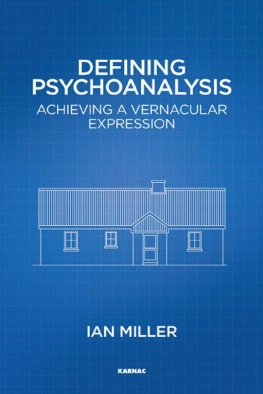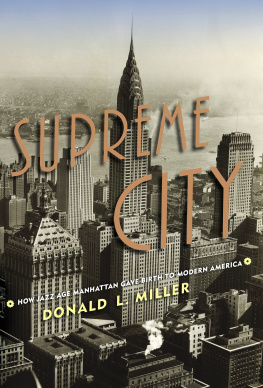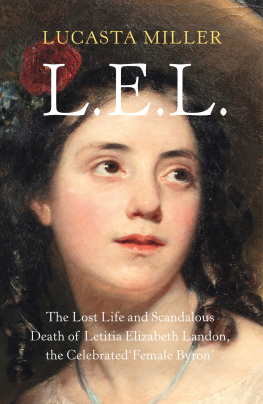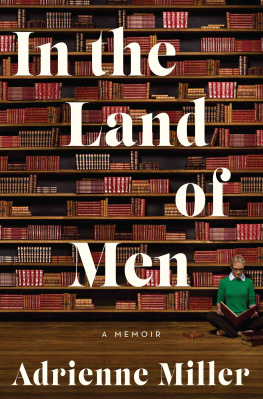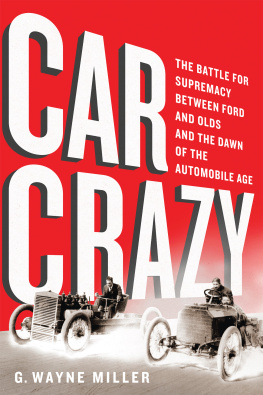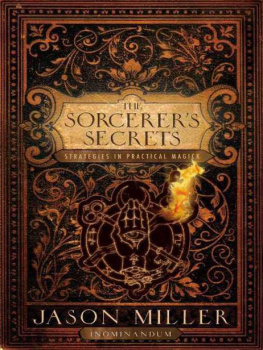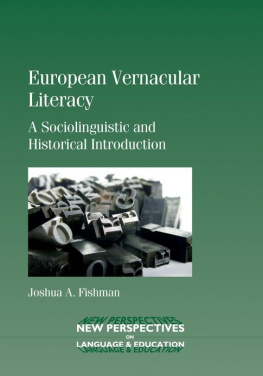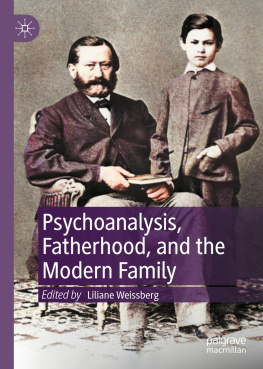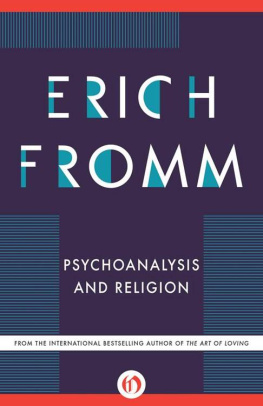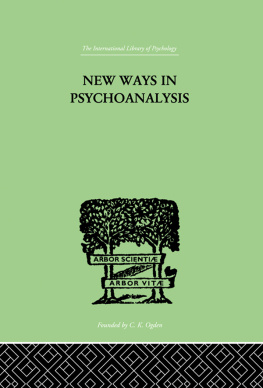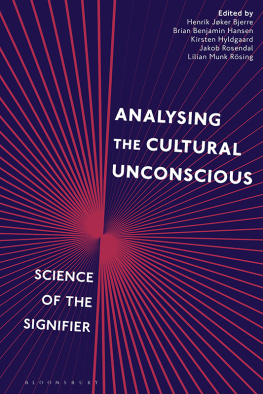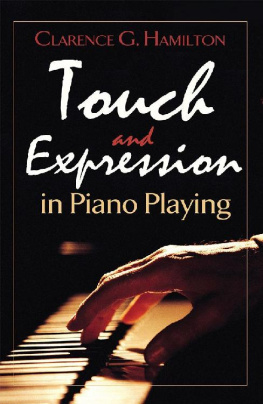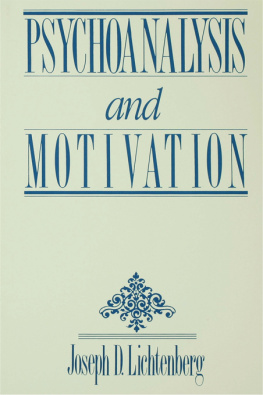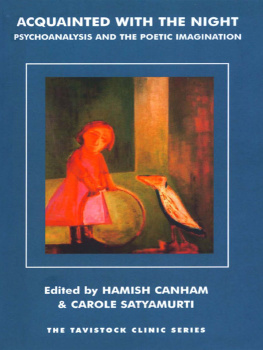Miller - Defining Psychoanalysis: Achieving a Vernacular Expression
Here you can read online Miller - Defining Psychoanalysis: Achieving a Vernacular Expression full text of the book (entire story) in english for free. Download pdf and epub, get meaning, cover and reviews about this ebook. year: 2017;2016, publisher: Karnac Books, genre: Romance novel. Description of the work, (preface) as well as reviews are available. Best literature library LitArk.com created for fans of good reading and offers a wide selection of genres:
Romance novel
Science fiction
Adventure
Detective
Science
History
Home and family
Prose
Art
Politics
Computer
Non-fiction
Religion
Business
Children
Humor
Choose a favorite category and find really read worthwhile books. Enjoy immersion in the world of imagination, feel the emotions of the characters or learn something new for yourself, make an fascinating discovery.
- Book:Defining Psychoanalysis: Achieving a Vernacular Expression
- Author:
- Publisher:Karnac Books
- Genre:
- Year:2017;2016
- Rating:3 / 5
- Favourites:Add to favourites
- Your mark:
- 60
- 1
- 2
- 3
- 4
- 5
Defining Psychoanalysis: Achieving a Vernacular Expression: summary, description and annotation
We offer to read an annotation, description, summary or preface (depends on what the author of the book "Defining Psychoanalysis: Achieving a Vernacular Expression" wrote himself). If you haven't found the necessary information about the book — write in the comments, we will try to find it.
Defining Psychoanalysis: Achieving a Vernacular Expression — read online for free the complete book (whole text) full work
Below is the text of the book, divided by pages. System saving the place of the last page read, allows you to conveniently read the book "Defining Psychoanalysis: Achieving a Vernacular Expression" online for free, without having to search again every time where you left off. Put a bookmark, and you can go to the page where you finished reading at any time.
Font size:
Interval:
Bookmark:
Achieving a Vernacular Expression
Ian Miller
KARNAC
First published in 2016 by
Karnac Books Ltd
118 Finchley Road
London NW3 5HT
Copyright 2016 Ian Miller
The right of Ian Miller to be identified as the author of this work has been asserted in accordance with 77 and 78 of the Copyright Design and Patents Act 1988.
All rights reserved. No part of this publication may be reproduced, stored in a retrieval system, or transmitted, in any form or by any means, electronic, mechanical, photocopying, recording, or otherwise, without the prior written permission of the publisher.
This book is derived in part from an article published in International Forum of Psychoanalysis on 06 Mar 2015, available online: http://www.tandfonline.com/10.1080/0803706X.2015.1020869 reprinted by permission of Taylor & Francis Ltd on behalf of The International Federation of Psychoanalytic Societies.
British Library Cataloguing in Publication Data
A C.I.P. for this book is available from the British Library
ISBN-13: 978-1-78220-271-4
Typeset by Medlar Publishing Solutions Pvt Ltd, India
Printed in Great Britain
www.karnacbooks.com
Ian Miller is a psychologist and psychoanalyst practising in Dublin, Ireland where he teaches in the faculty of psychoanalytic studies at Trinity College Dublin. He is the author of Beckett and Bion: The (Im)Patient Voice in Psychotherapy and Literature (with Kay Souter, Karnac, 2013) and On Minding and Being Minded: Experiencing Bion and Beckett (Karnac, 2015).
Toni O'Brien Johnson
While Wikipedia didn't exist in 1977, a definitional search for psychoanalysis in my Oxford English Dictionary of that year would have been fruitless: an indication that the English academy was still hesitant to embrace and articulate the uncertainties of the field. Where to place psychoanalysisamong social sciences, the arts or the sciencesmay still exercise some purists, but there is little hesitation in classifying the term vernacular primarily in the field of language. Therefore, this timely book invites psychoanalysts to discover some common language for meeting and talking to each other across any sectarian divides.
One might expect to find a natural idiomatic language and phraseology already in use between members of this profession, given its recognition of the value of relatedness. However, here we are confronted with a history of innumerable (sometimes ongoing) splits occurring between and within groups working in the psychoanalytic field, each group maintaining emphasis on the concepts it considers central, and developing a terminology around these to express their particular orthodoxy. Thus, communication and recognition between psychoanalysts can be difficult, avoided, and sometimes even fraught. In light of the increasing political preference for short therapies, the need of psychoanalysts for a shared understanding is ill-served for want of interest in translating from one terminology to another. So this voyage of discovery for a vernacular language for psychoanalysis produces a valuable map, indicating five major landmark texts between its origins and the Babel of today.
Ian Miller's previous two bookstitled Beckett and Bion: The (Im)Patient Voice in Psychotherapy and Literature with Kay Souter (2013) and On Minding and Being Minded: Experiencing Bion and Beckett (2015)gave us strong close readings of the analysis undertaken by Samuel Beckett with Wilfred Bion in London in the mid-thirties. Bion, like the Tavistock Clinic to which he was attached at the time, adopted an eclectic approach to psychoanalysis. In these earlier studies, Miller negotiates and interprets between the languages of creative writer and psychoanalyst, whose respective modes of expression are subjected to the closest scrutiny.
In the present study, Miller's interest is in seeking out markers in the clinical landscape, which now shape our models for clinical action. As with any field of study, it is desirable to be able to see beyond local trends so as to produce a more comprehensive map. Here, the choice of a Psychoanalytic Electronic Publishing survey certainly ensures the contemporary quotient, and English tends to function as a lingua franca worldwide at international psychoanalytic conferences in our globalised world. Whatever language it uses, given depth psychology's insistence on the importance of the unconscious, the presence of ambiguity and paradox is to be expected. As Jung reminds us:
One uses a word or a concept [] that in another connection has an entirely different meaning of which one is momentarily unconscious, and this can lead to a ridiculous or even disastrous misunderstanding. Even a most carefully defined philosophical or mathematical concept, which we are sure does not contain more than we have put into it, is nevertheless more than we assume. (CW XVIII, The Language of Dreams, p. 203)
The inwardness of the focus of depth psychology meant it paid less attention to theories of interpersonal relational dynamics at its outset. Freud and his contemporaries concentrated largely on the psyches of adult patients, while more explicitly developmental models for thinking about the psyche were elaborated later.
In the English-speaking world, the work of Donald Winnicott now carries immense weight across different schools and approaches, so he appears as the first theorist here informing contemporary psychoanalytic thinking in the PEP survey. Yet, as Miller asserts below: Psychoanalysis [] is not a singular document or text, but rather a matrix of dynamic relationships of meaning, generating dynamic serial links between previously disjointed concepts. This matrix is not identical for us all, but assuming we each continue to grow post partum, such difference need not exclude us from meaningful exchanges with psychoanalysts of another lineage.
As someone trained in Zrich in the Jungian tradition and practising in Ireland, I belong to the roughly 10% minority of psychoanalysts who choose to be identified as analytical psychologists after the break from Freud. But I am glad to witness the diminution of anxiety about identity, which now permits the designation Jungian psychoanalyst instead. The London Jungian approach was much more developmental early on, having been especially influenced by Melanie Klein, Donald Winnicott, and Wilfred Bion. Meanwhile, in Zrich, someone like Mario Jacoby was not deterred from paying close attention to the importance of developmental issues, and his input there opened the way for others to follow and enjoy the fruits offered by taking such a direction.
Fear of trying out different theoretical positions may arise from typological preference. The most productive clinical work can be carried out when our whole being and all our functions, including thinking, can be present to grapple with whatever complex might be constellated. It would be foolish to exclude thinking or theory that might facilitate the evolution of the work at a particular moment during an analysis. Likewise, in the formation of analysts, it would be foolish to exclude texts or teaching that would enable them to relate to the wider field, beyond what is local.
Dealing with the delicate issues of what and whom to include or exclude presents an evident cultural dilemma today. Making decisions on sectarian grounds is clearly ill-advised and shortsighted, and fashion is of its nature ephemeral. Reaching some degree of consensus would be desirable for psychoanalysts, providing it was not based on cosy assumptions and could tolerate a vital degree of individuality. Defining Psychoanalysis is a good starting place for discerning the clinical landscape shared among psychoanalytic practitioners of all varieties, in our contemporary world.
Font size:
Interval:
Bookmark:
Similar books «Defining Psychoanalysis: Achieving a Vernacular Expression»
Look at similar books to Defining Psychoanalysis: Achieving a Vernacular Expression. We have selected literature similar in name and meaning in the hope of providing readers with more options to find new, interesting, not yet read works.
Discussion, reviews of the book Defining Psychoanalysis: Achieving a Vernacular Expression and just readers' own opinions. Leave your comments, write what you think about the work, its meaning or the main characters. Specify what exactly you liked and what you didn't like, and why you think so.

